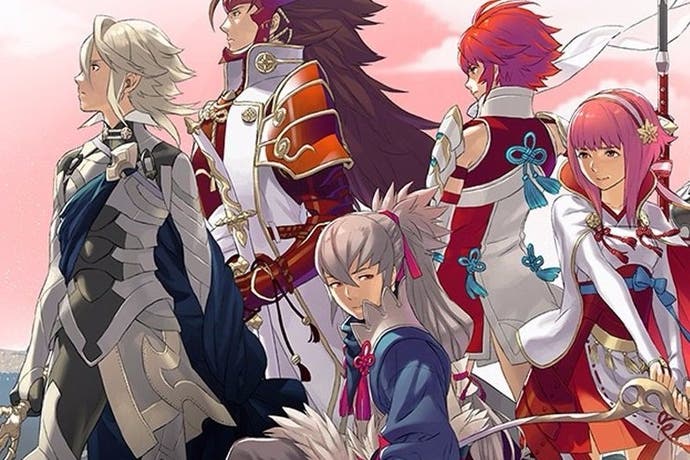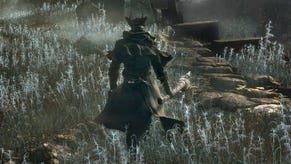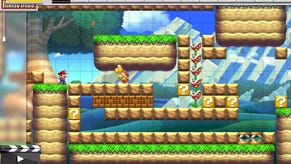Fire Emblem Fates review
Duel of the Fates.
In Fire Emblem, there's one command that conquers all - one simple instruction that defeats the sharpest sword, an expertly aimed arrow or the most brutal of axes. Your forces might be diminished, your very best soldiers lying limp on the battlefield never to return, but you can sidestep the lasting effects with one input. Hold the shoulder buttons down in tandem with either start or select and you're sent back to the title screen, ready to pick up an old save file and start all over again.
The reset has been a part of Intelligent System's strategy RPG series for so long it's become a celebrated system - when Fire Emblem Fates director Kouhei Maeda turned up to the last ever Iwata Asks to discuss the game, he did so with a t-shirt proudly stating 'Reset? Bring it on!' - but recent years have seen the series' take on death soften.
2010's Japan-only DS outing introduced a casual mode through which downed members came back at the end of each chapter, a feature that carried on into 2013's glorious Awakening. Fates goes one step further, with a Phoenix mode that resurrects downed characters upon each turn. It speaks to the rift that runs right through Fire Emblem, a series whose dual personalities have come to the fore in recent years.
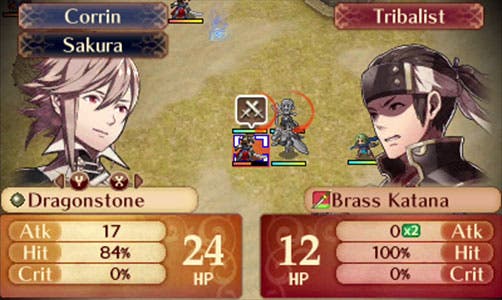
On one side it's a turn-based strategy, delivered with a delightfully hard edge, while on the other it's a role-playing romance sim as you bring units together in unison; it's a game of chess in which you're willing your rook and your queen to get it on so they can make gurgling new pieces that can join you in battle. Fates makes absolutely no motion to bridge the gap. If anything, this pointedly fractured strategy game revels in the divide, wilfully pushing it even further.
On the face of it, it makes for a confusing proposition. Fates isn't one but three markedly different games, delivered in a needlessly convoluted fashion that undoes so much of the open-armed accessibility that opened up Fire Emblem to a whole new audience with Awakening and making it a global hit. (Such was its success that it extended the life of the series - Awakening was intended as a last hurrah, an amalgamation of all that had gone before, but its heady sales persuaded Intelligent Systems to push ahead with an all-new Fire Emblem).
All three versions of Fates share the same opening six chapters, and at that point you and the character you create are presented with a choice: side with the noble Samurai-like warriors that defend the kingdom of Hoshido in Birthright, or take up arms for the more brutal medieval forces of Nohr in Conquest (a third option allows you to broker peace between both sides in Revelations, a campaign delivered as DLC coming a few weeks after the physical releases of both Conquest and Birthright).
It's more than an aesthetic or moral choice you're offered, the 30 hour campaign offering 27 very different chapters apiece: Birthright's the more forgiving of the two, affording you options to grind out experience points in between chapters, while Conquest is tuned more towards veteran Fire Emblem players, introducing the sterner challenge that some felt was lacking in Awakening through more exacting mission requirements.
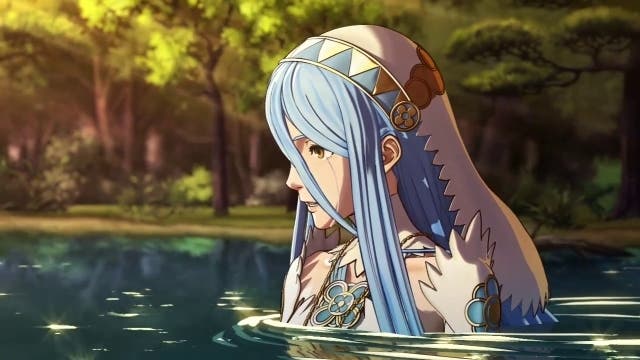
Is there a right choice to be made? Fates' story shares a wonderfully complex morality across both sides, its tale of clashing bloodlines playing out like Kurosawa through kid's eyes, the superficially upstanding Hoshidan's tale taking some darker turns while there's light to be found beneath the coal black armour of the Nohrian forces. With its cast painted a slightly darker shade of grey it's Conquest that's undoubtably the cooler of the two games, and its challenge is excused by a delightful conceit: you're fighting for Garon, a king gone darkly mad, who keeps pushing towards impossible missions in an effort to cruelly test you.
Whichever path you choose - and quite honestly, such is the quality of Intelligent Systems' work here I'd recommend just going all in and getting the lot - the fundamentals are the same, a continuation of Awakening's fresh-faced, winningly stylish take on the Fire Emblem formula with a handful of new crinkles thrown in. A selection of new Samurai-themed weapons fit neatly into the well-established weapon triangle, while My Castle introduces a new explorable and customisable hub area to return to between chapters.
It's a curious space in which the sun sets and rises to its own mysterious rhythm, filled with perhaps one too many diversions: you can upgrade merchants, feed your resident dragon, do the lottery or pick away at the scenery to uncover various resources, and after a while the field of exclamations marking new activities becomes a sloppy sprawl. Still, who cares when you can build an avenue dedicated to statues of your finest warriors?
My Castle's also host to Fire Emblem's softer side, and it's where you'll be consolidating the relationships between characters. Like Awakening before it, love does indeed bloom on the battlefield, a bond forming between characters that fight side by side that can be tickled along via support conversations or, in Fates' new twist, by inviting them up to your private quarters.
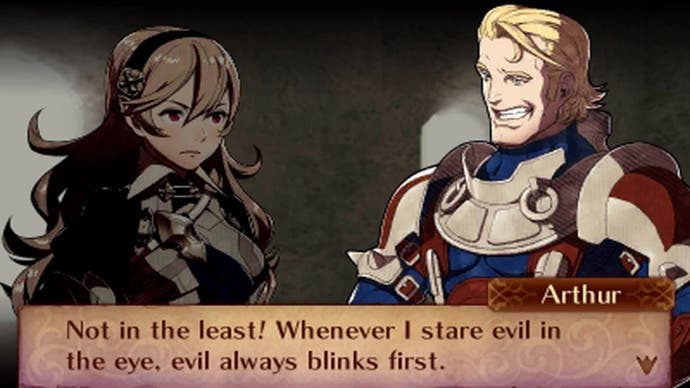
It's a truncated feature, though, and while Nintendo's translation work in Fates is fine - if perhaps not quite as characterful as 8-4's work on Awakening - there's an awkward hole where the petting game used to be, a feature excised for the western versions. I'm not particularly keen on stroking the faces of Fire Emblem's cast, but in its place is a weird vestigial moment as you're met with characters who fade away again before anything actually happens.
The slightly clumsy edit doesn't detract from the craft that's found elsewhere, however. Fire Emblem Fates has a premium feel throughout: it's a game built from the finest oak and marble and stone, all put together with a delicate touch and a master's eye. It feels expensive, from impeccable sprite work that sits comfortably alongside the bold and handsome character designs of Yūsuke Kozaki to the little flourishes that append each menu.
Intelligent Systems has once again created an amazingly tactile brand of strategy, too - the click of the cursor as you place it on the grid of the battlefield feels so right it could only be the result of 26 years worth of experience in the series, the swell of music that accompanies the zoom into a skirmish a moment of impeccable flair. Fire Emblem Fates, at times, comes close to heady perfection, seeing Intelligent Systems once more at the top of its game.
How brilliant, then, that it's been so generous with Fates. There's no wrong way or right way to play this game. No matter what path you take, you're rewarded with a fine adventure, with strategy that plays out with an impeccable sense of craft and quite simply one of the 3DS' very best games. Across its different flavours, Fire Emblem Fates offers ample choice, rewarding each in turn with plentiful spoils. If you really want to see Fire Emblem at its finest, though, there's only one way to go. Reset? Bring it on.
